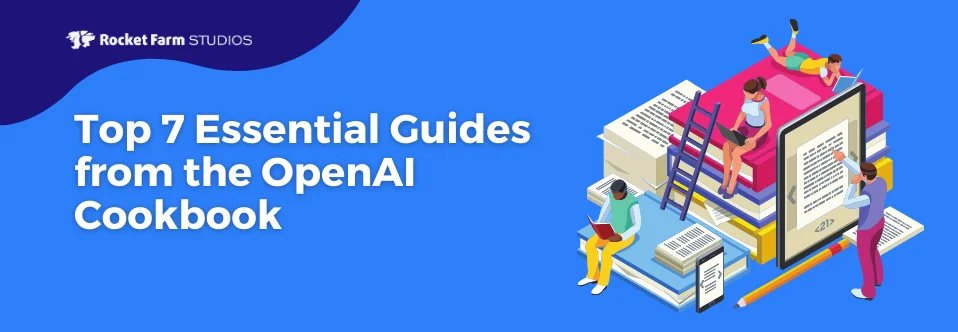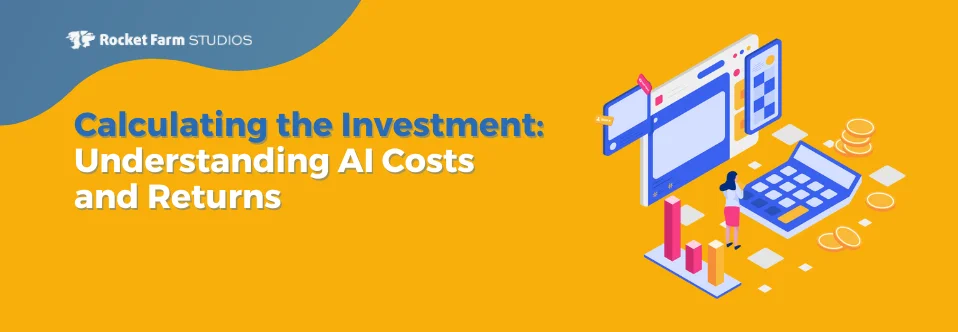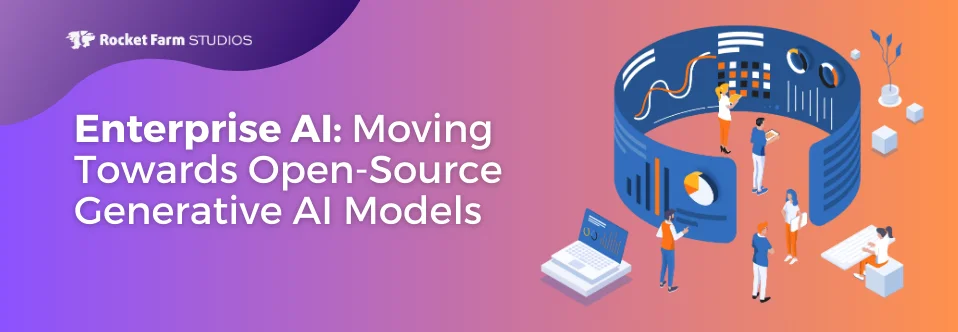At Rocket Farm Studios, we’re not just about using technology; we’re about using the right technology. OpenAI is one of the many tools in our arsenal, and today, we’re focusing on how it’s been a game changer for some of our ambitious projects.
The OpenAI Cookbook? It’s been our roadmap. This piece highlights OpenAI Cookbook chapters that offer actionable insights for improving your AI development projects.
Today, we’re excited to share our curated list of the top 7 guides from the OpenAI Cookbook, each selected for its potential to spark innovation, relevance to our work, and ability to empower our team with new skills and insights.
Why the OpenAI Cookbook?
The OpenAI Cookbook offers a practical, example-driven approach to AI technologies. It’s filled with insights on improving the reliability, performance, and scalability of AI projects, which directly aligns with the objectives of our customers. This resource stands out for its actionable advice and detailed examples, making it a valuable tool for developers looking to enhance their AI projects.
The OpenAI Cookbook is an essential tool for anyone looking to deepen their understanding of AI applications and how to implement them effectively.
Why These Guides?
Our selection of guides from the OpenAI Cookbook was driven by an objective evaluation of their applicability and potential impact on our projects and the value they deliver to our clients. Here’s the rationale behind our choices:
- Practicality and Innovation: We looked for guides that offer clear, actionable steps and also push the boundaries of what’s possible with AI. This ensures that our projects not only meet current technical standards but also incorporate forward-thinking approaches that set new benchmarks in innovation.
- Alignment with Project and Client Needs: The guides we selected are particularly relevant for developing solutions that are robust, efficient, and tailored to the specific goals of our clients. This alignment ensures that we’re not just using AI for its own sake but leveraging it to directly address the challenges and opportunities our clients face.
- Diversity of Applications: Our choices reflect the broad applicability of the OpenAI Cookbook, demonstrating its utility across a wide spectrum of AI challenges. This diversity underscores the Cookbook’s value as a comprehensive resource for tackling the varied aspects of AI development, from enhancing search functionalities to optimizing data analysis, thereby catering to a wide range of client needs.
Without further ado, please enjoy the top 7 guides we love best!
Our Top 7 Guides from the OpenAI Cookbook
- Introduction to the OpenAI Cookbook: Starting with a solid foundation is crucial. This guide acts like the table of contents of a textbook for anyone new to the OpenAI ecosystem. It helps developers quickly identify which OpenAI tools and techniques can best solve their specific problems, whether that’s automating customer service responses or generating content. We highlighted it to ensure our team doesn’t waste time on trial and error but instead directly dives into productive development.
- Improving Reliability through Advanced Techniques: Imagine developing a customer support AI that not only answers common questions but also understands complex, multi-part inquiries. This guide shows how to refine AI responses, making them more thoughtful and accurate by teaching the AI to “think through” problems step-by-step. It’s like giving your AI a crash course in logic and reasoning, directly impacting the quality of interactions with end-users.
- Vector Databases for Semantic Search: Integrating vector databases turns a standard search function into a supercharged, context-aware tool. For example, when a user searches for a product, the AI can understand the query in natural language and find the most relevant results, even if the exact keywords aren’t used. This guide is crucial for creating intuitive search experiences that understand user intent, making it easier to find information or products, thus boosting user satisfaction and engagement.
- Token Counting with Tiktoken: Keeping an eye on token usage with Tiktoken is akin to monitoring fuel consumption in a car; it ensures you get the most out of every liter (or in this case, every token). This guide is key for optimizing the way we structure queries to the AI, ensuring we get detailed, useful answers without unnecessary API costs. It’s beneficial for startups and SMEs where budget efficiency can be a game-changer.
- Supabase Vector Database Integration: By following this guide to integrate Supabase, developers can set up a database that grows with their project, ensuring that as more data is collected (like user feedback or product information), the AI’s ability to deliver relevant and personalized content only gets better. It’s perfect for e-commerce sites or customer service applications where the ability to quickly access and analyze customer data can significantly enhance the user experience.
- AnalyticDB Guide: This guide is like having a turbocharger for your data analysis engine. It enables real-time analytics on large datasets, allowing businesses to gain insights and make data-driven decisions rapidly. Whether it’s understanding user behavior, optimizing operations, or personalizing marketing strategies, this guide equips developers with the tools to harness their data effectively, ensuring that projects remain agile and informed.
- Azure AI Search Implementation: Implementing Azure AI Search transforms a basic search tool into an intelligent assistant that anticipates the user’s needs. It’s particularly useful for content-rich sites where users might feel overwhelmed by the volume of information. This guide provides a roadmap for creating search functionalities that not only understand the nuances of user queries but also deliver personalized content, making information retrieval intuitive and efficient.
Final Thoughts
The OpenAI Cookbook is a prime example of how open-source resources can advance artificial intelligence. It has become a key resource for us at Rocket Farm Studios, enhancing our AI development work with essential knowledge and innovative techniques.
The path to mastering AI can seem tough, but it’s tools like this cookbook that show how a bit of guidance can make a big difference. We’re here to share that support, helping those ready to dive into AI’s possibilities.
So, start with the OpenAI Cookbook to boost your projects. It’s a straightforward resource for anyone keen on deepening their AI knowledge and skills, providing clear guidance that can have a real impact on your work.
Got questions or need guidance on AI? Reach out, and let’s innovate together!








